Cameroonian girls chase brighter future with football
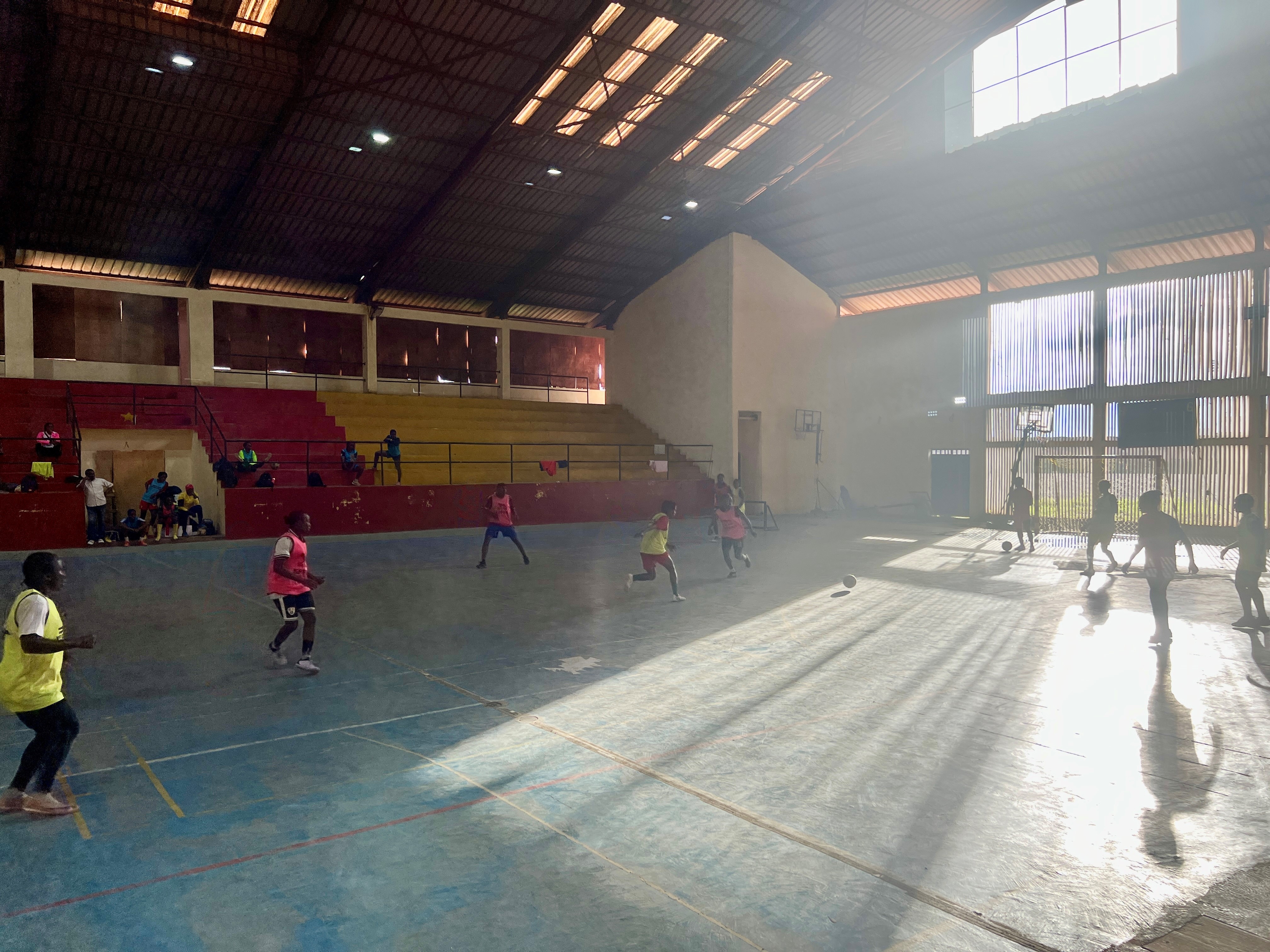
Football gives young Cameroonian women hope for an alternative future in a country where men's football reigns supreme. In a society that is still deeply patriarchal, growing media attention on women's football is encouraging more girls to defy prejudices and consider a professional career. While their fierce determination may be changing attitudes, they still make many sacrifices.
This report was produced as part of En Quête d’AilleursExternal link, an exchange programme between journalists from Switzerland and countries in Africa, eastern Europe, Asia and Latin America. The theme of 2024 was the challenges of sportExternal link.
A torrential downpour batters the stadium in Yaoundé on the last Tuesday in September. The noise of the water pounding on the tin roof is so deafening that it drowns out the sounds of footballs hitting the ground and shoes squeaking.
From the top of the concrete bleachers painted in the colours of the Cameroonian flag, Christian Onana watches intently as “his” girls play. He has been president of the Éclair girls’ football club in Sa’a for five years. “Women’s football is a rising sport, because today the world is interested in it,” he says. “But in Cameroon, people still think a girl’s role is to go to school and then take care of the household chores when she gets home.”
Several girls at Éclair have already been selected for the national team. The club from the capital plays in the premier league, the elite of women’s football in Cameroon, along with 11 other competitors.
To reach this level of the game, sportswomen in all the Cameroonian clubs have had to make many sacrifices and break taboos.
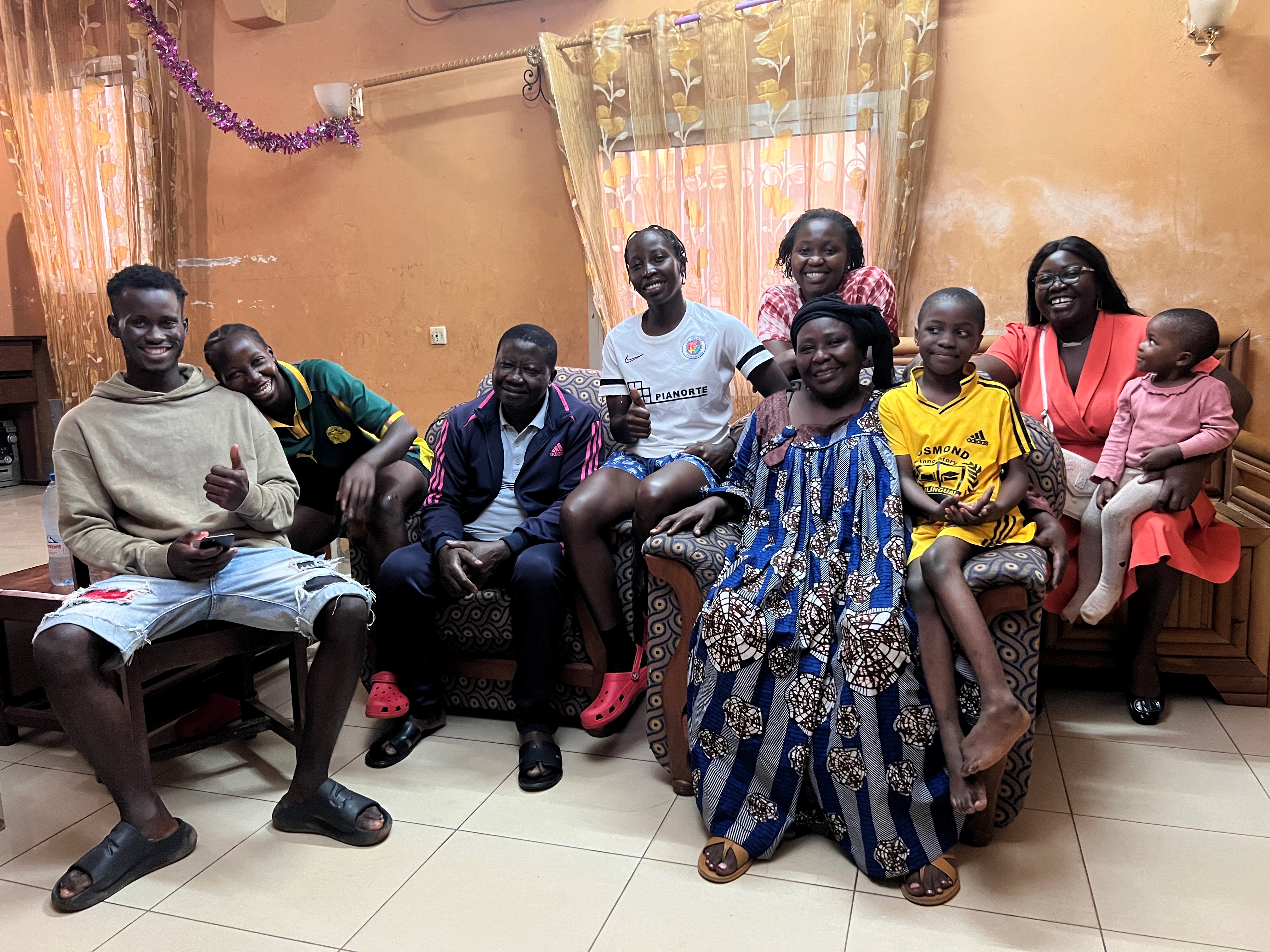
Parental resistance
In the Priso family, twins Pauline Marcelle and Rose Michelle, aged 24, have become professional footballers.
Seated in a large, rustic, blue-grey armchair, their father, Manfred II M. Priso, declares: “The goal of parents is to bring up children from birth, send them to school and give them an education. After that, they need to start working.”
Women’s football in Cameroon was the subject of a R4D (research for development) project, a research programme on global issues for development. It is jointly funded by the Swiss National Science Foundation and the foreign ministry’s Swiss Agency for Development and Cooperation.
“I have always worked as a researcher on issues of gender inequality and the way in which young women assert their place in society outside the traditional structures fighting for women’s rights”, says Dominique Malatesta, who is in charge of the Kick it like a girlExternal link project launched at Haute Ecole de travail social et de la santé de Lausanne, the Lausanne university for social work and health known as HETSL. For Malatesta, “sports clubs are a very good place to talk about this”.
Between 2018 and 2023, several Swiss and Cameroonian researchers “explored young women’s involvement in football teams in Cameroon from the perspective of their participation in political and social life and their experience of citizenship”.
Most families do not see a career in football as a promising direction for their daughters. Girls like the Priso twins are therefore forced to go against their parents’ wishes, which can sometimes lead to corporal punishment.
Like Priso, many parents make permission to play conditional on passing the baccalaureate.
By sheer perseverance, the Priso sisters succeeded and were able to devote themselves fully to their careers by the time they reached the final year of secondary school.
A difficult choice
At the Yaoundé stadium, the rain is easing. As the Éclair de Sa’a women’s football team continue their training by playing a match, Ricky Siani, the sporting director, talks about the difficulties clubs have in recruiting players. “I’ve been chased away by parents with buckets of water,” he says.
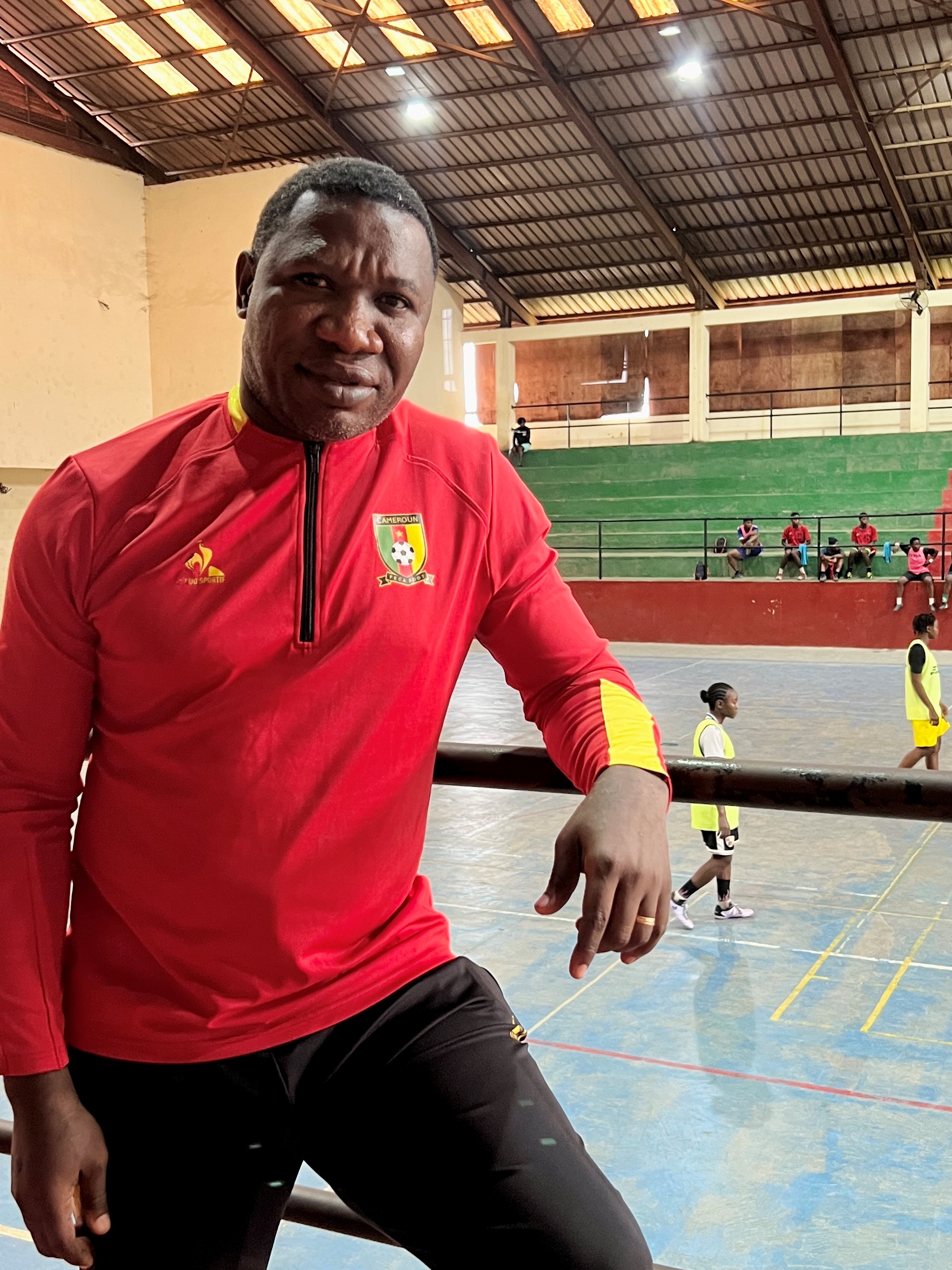
When they are in total disagreement, it’s not uncommon for families to decide to cut ties with a daughter who wants to pursue her dream at all costs. The club management is then forced to step in and provide for the teenager, as far as it can.
A man’s sport
Religion plays a central role in Cameroon. Nearly 70% of the population are Christians, more than half of whom are Catholic. This helps to explain the traditional role often assigned to women.
Sitting behind an imposing dark wooden desk, elegantly dressed with hair in braids, the general secretary of the Cameroon Women’s Football League, Sidonie G. Tagne says: “When I look at photos from the past, I wonder how I managed to become a woman again. We didn’t style our hair, we acted like men.” She herself was a well-known player in the 1980s.
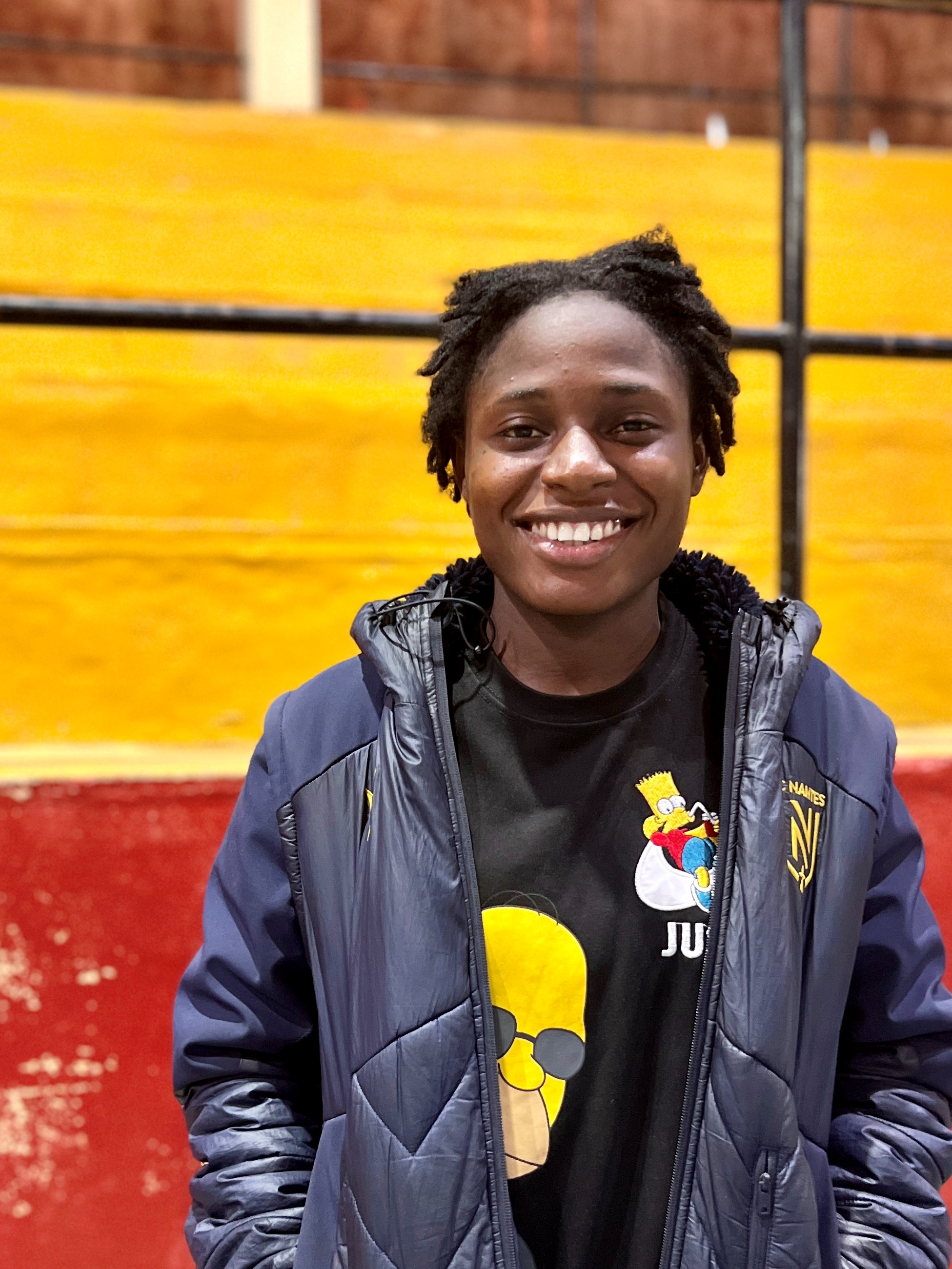
Young girls who embark on a career in football careers are often stigmatised and mocked. With their sporty outfits and generally short hair, they don’t project the image that Cameroonian society expects of women.
Alexandra Mbitounou Nke, known as Fortune, for example, is “cautious” when asked whether she plays football, and only confirms it when her interlocutor insists. “I think the reason for the insults is that people have prejudices,” she says.
Taboos and femininity
Hesitantly, Fortune mentions the most taboo subject of all: homosexuality.
Under the Cameroonian penal code, same-sex sexual relations are a criminal offence, punishable by up to five years’ imprisonment. Religion and a society that is still very traditional also play a significant role in Cameroonians’ negative view of homosexuality.
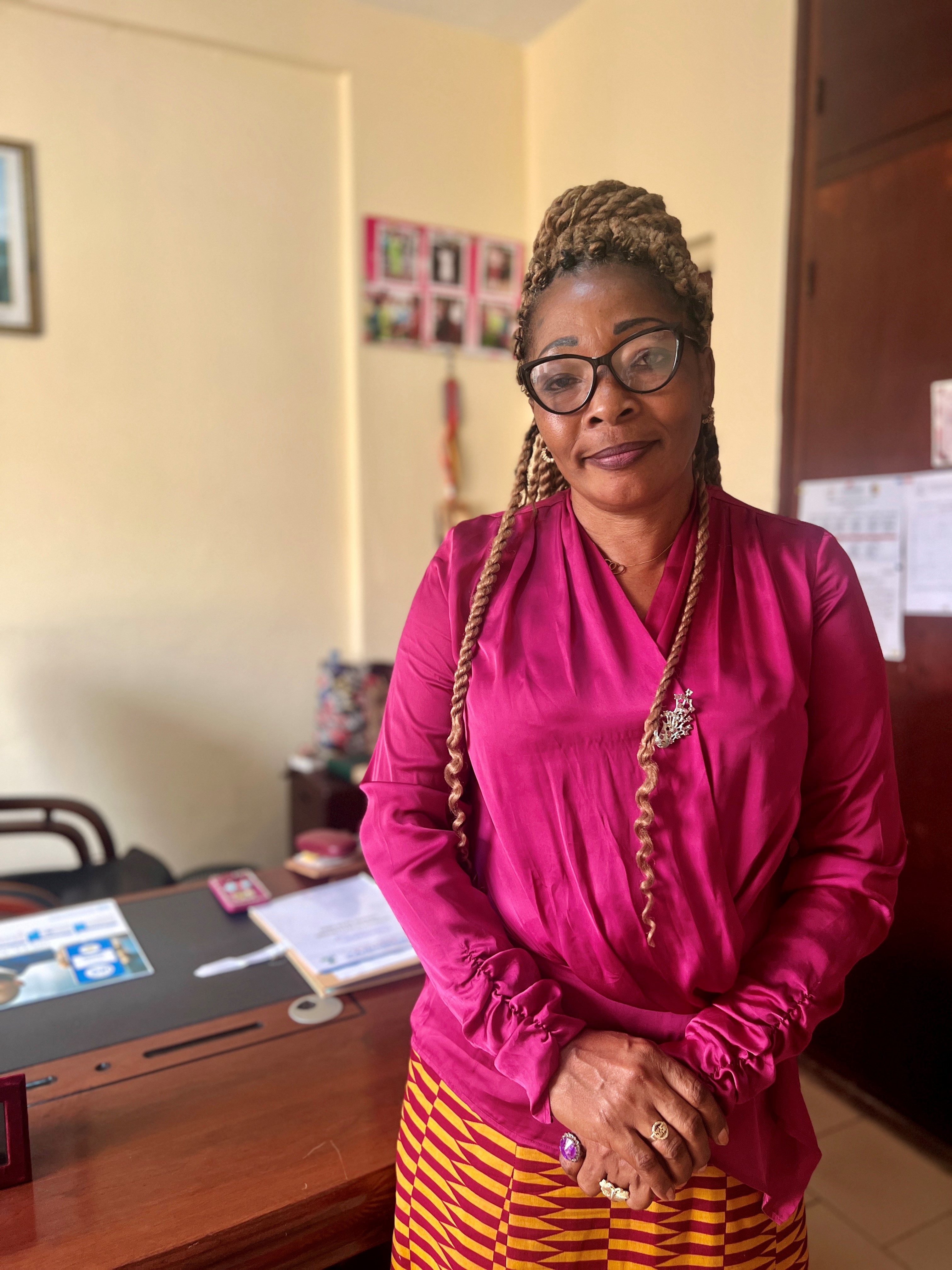
Many parents are reluctant to allow their daughters to join a professional club, believing that becoming footballers could lead to them “getting caught up in all that”, Onana explains.
Over the last few years, the women’s football league has adopted a communications strategy aimed at breaking down this popular image. In its promotional campaigns, it highlights players who meet Cameroon’s standards of femininity, often wives and mothers.
Lack of financial independence
Although significant progress has been made in recent years, low subsidies, bonuses and salaries are holding back the development of women’s football in Cameroon, which has a long tradition.
At the Éclair girls’ football club in Sa’a, players earn around 2,000 CFA francs per training session (just under CHF3), finances permitting. There are also match bonuses, which can be as much as 20,000 CFA francs for a win. And usually, the sole sponsor of the women’s Premier League, Guinness Cameroon, pays them a monthly salary of around 65,500 CFA francs.
According to Cameroon’s national statisticsExternal link institute, the average monthly income of “informal workers”, i.e. people who work for themselves, was 83,409 CFA francs in 2023.

The Women’s Football League pays subsidies to clubs, but these are volatile.
Even so, these meagre earnings enable young women to become more independent. And if they are selected for the national team, their income increases significantly. According to Siani, “that gives them extra motivation and encourages them to see their football career as a real job”. They are then no longer dependent on a potential husband.
The benefits of visibility
Thanks to the growing media coverage of women’s football, attitudes are slowly changing at various levels of society. Parents are also increasingly realising that it is possible to combine a sporting career with a degree.
“Even 10 years ago, it wasn’t easy,” Tagne says. “Now, the performance of these young women is the stuff of dreams. They have become role models in Cameroon.”
Less enthusiastically, Onana concurs that the growing interest in women’s football “is making people realise that women have their place in today’s society”.
Text edited by Samuel Jaberg/ds

More
Our weekly newsletter on foreign affairs

In compliance with the JTI standards
More: SWI swissinfo.ch certified by the Journalism Trust Initiative
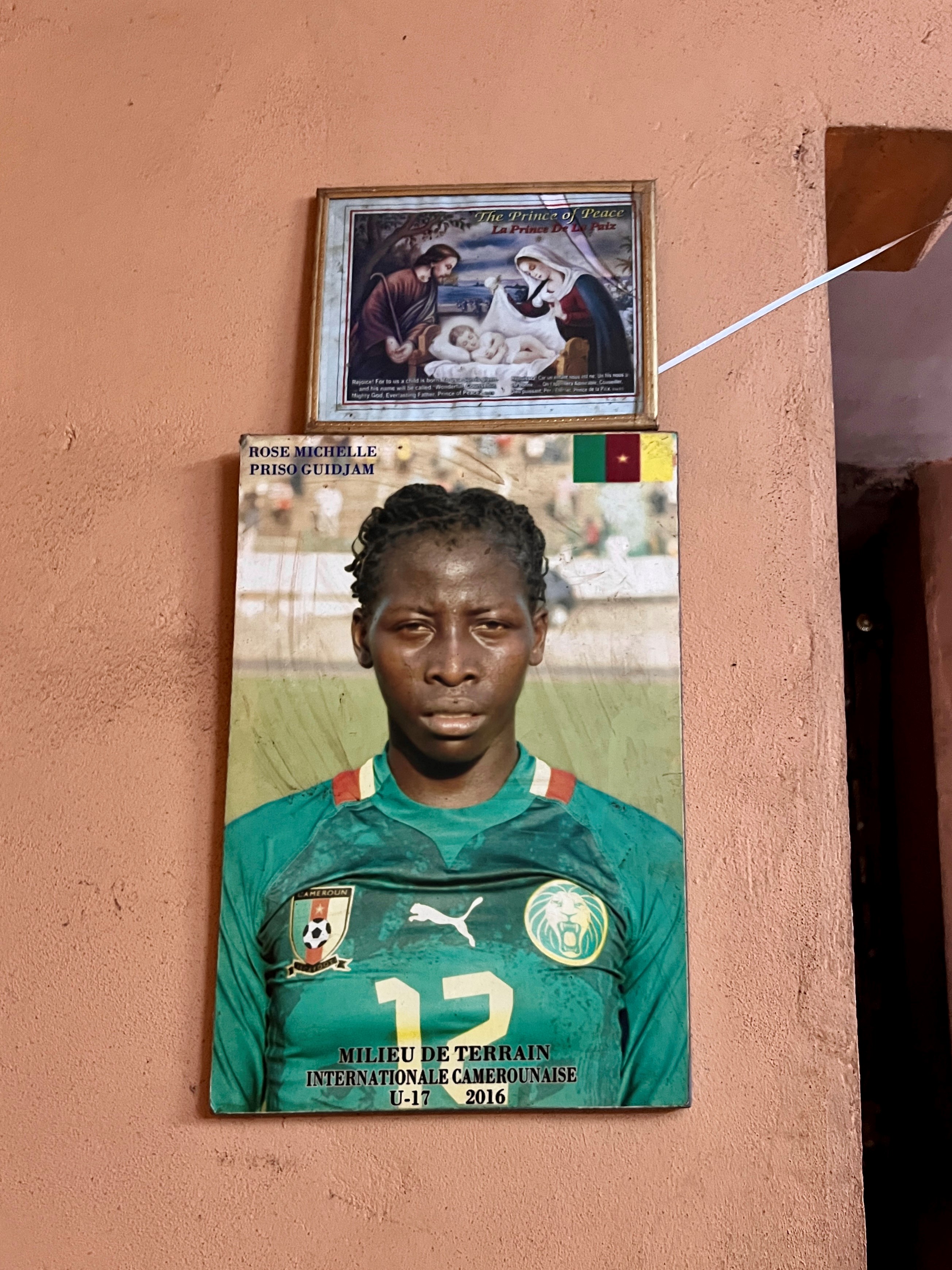

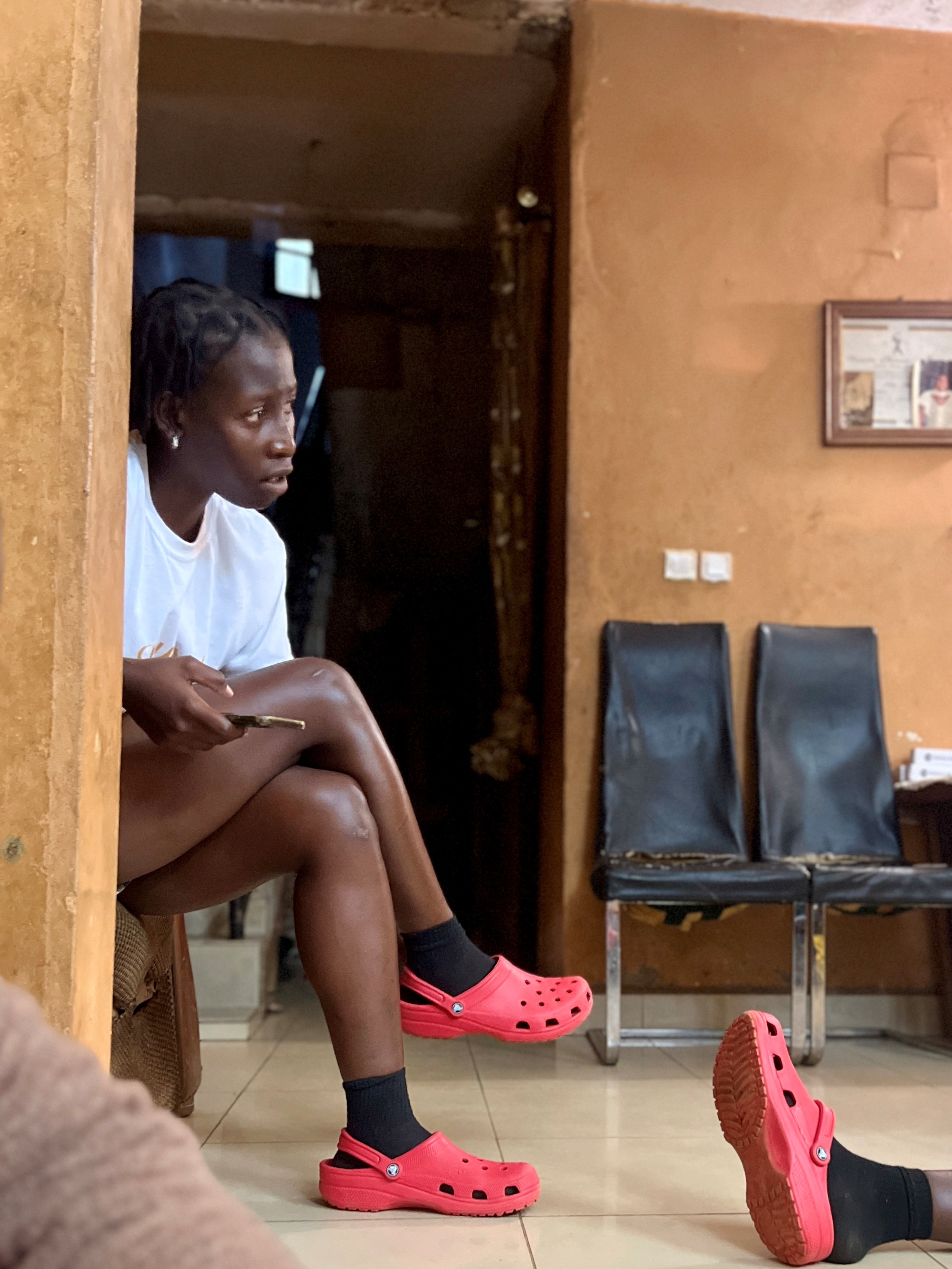
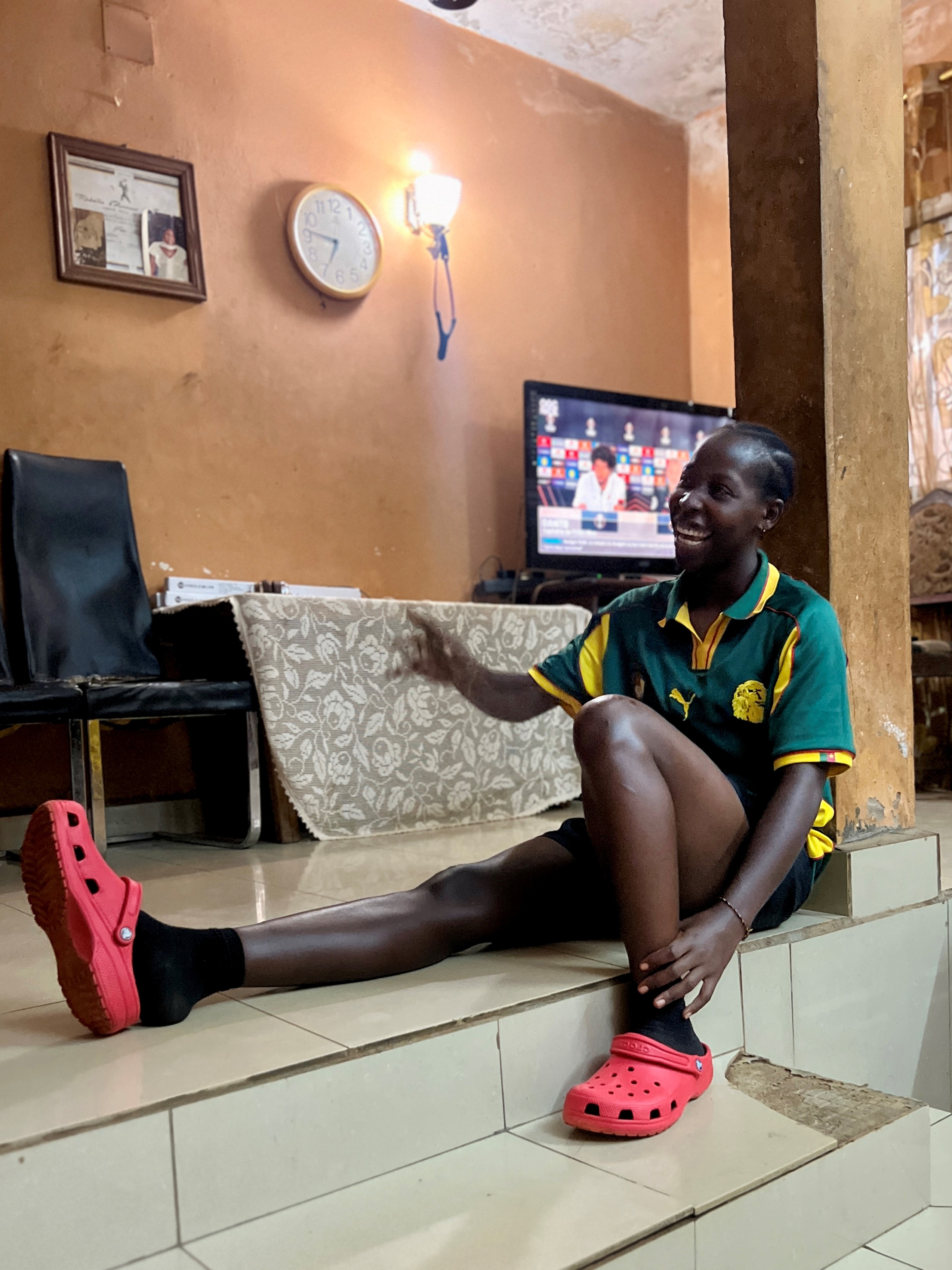
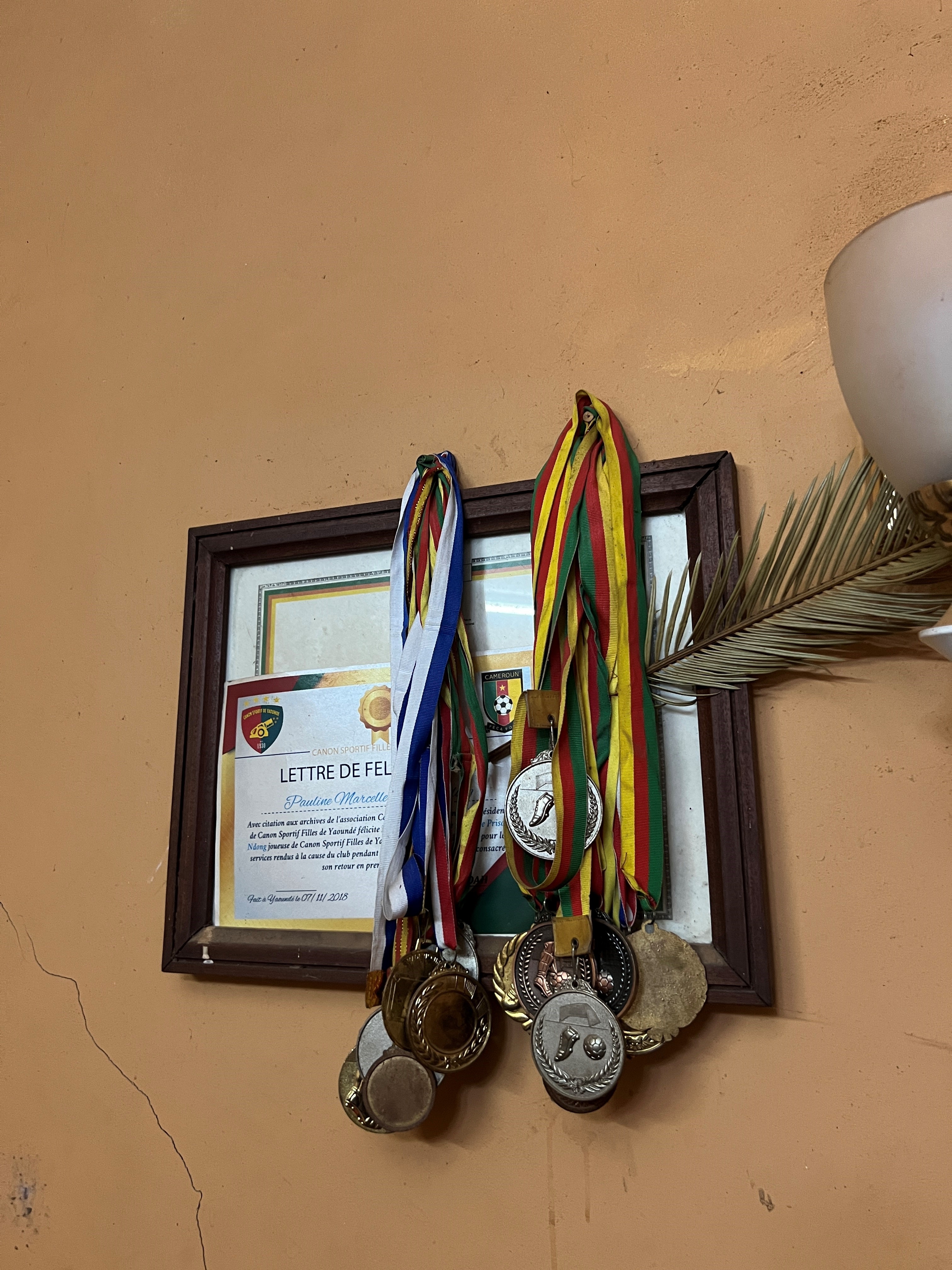

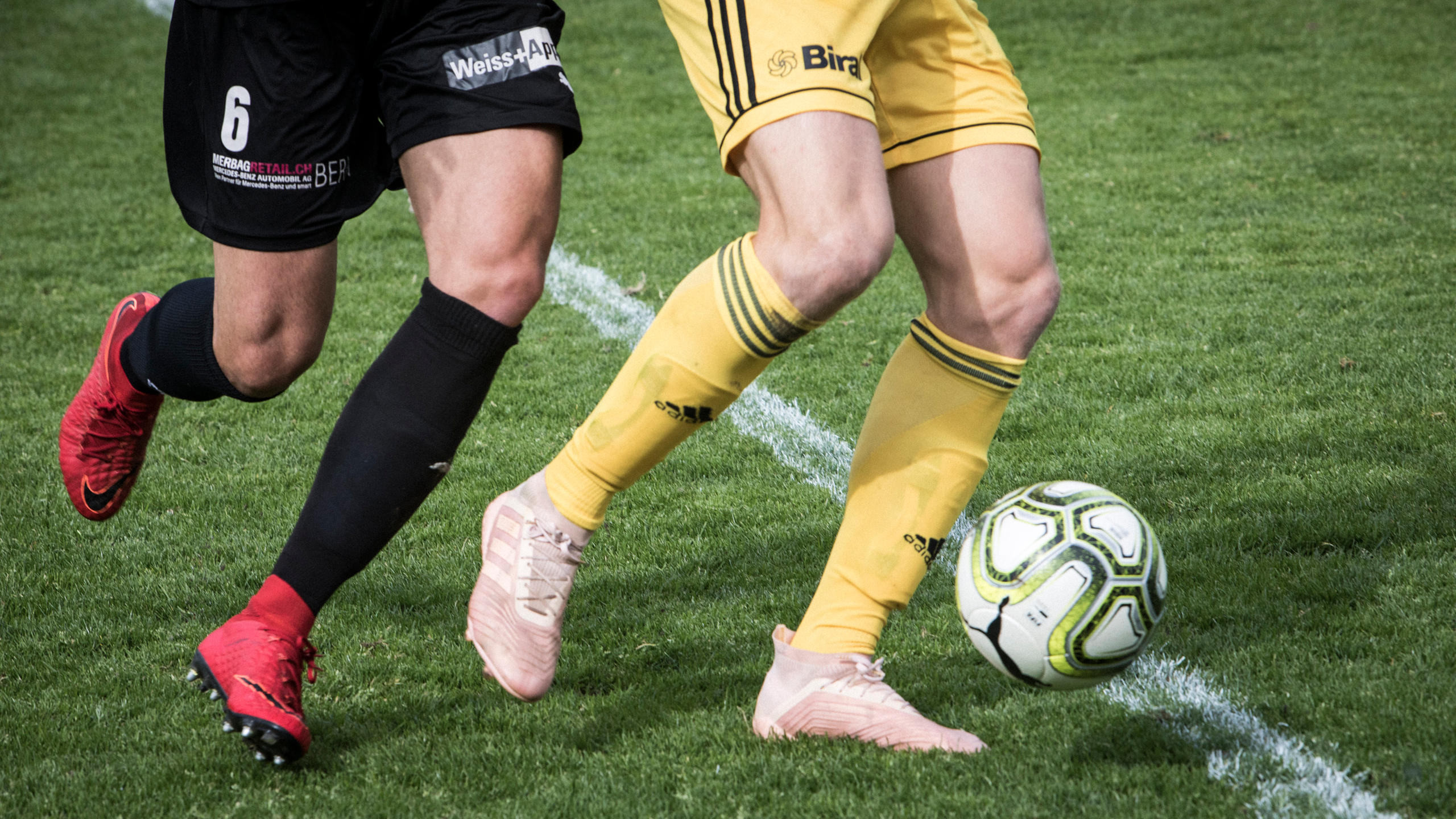
You can find an overview of ongoing debates with our journalists here . Please join us!
If you want to start a conversation about a topic raised in this article or want to report factual errors, email us at english@swissinfo.ch.